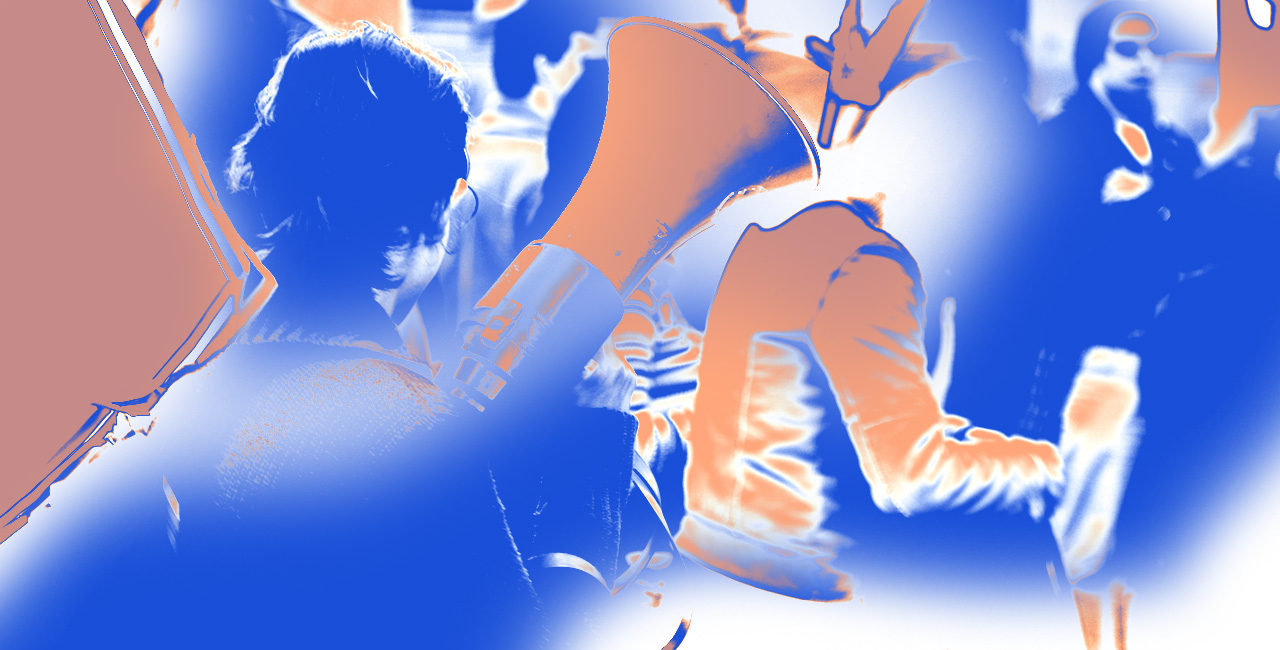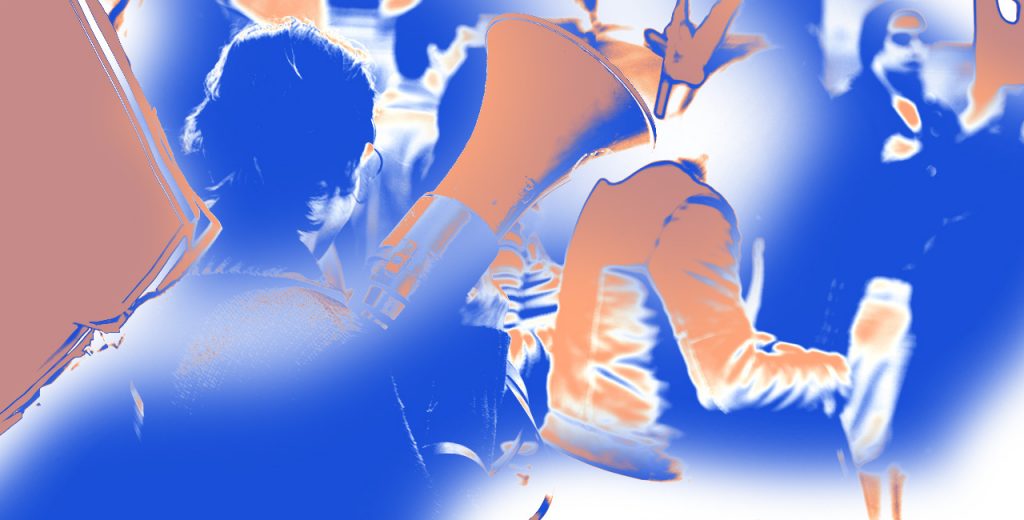Though it’s easy to feel despair as more of the Trump Administration’s plans to strip rights for immigrants, women, people of color, low-income communities, and the most disenfranchised come to light, we know that organizing and the sustained efforts of activists can make all the difference. That’s why we’ve teamed up with Latino Victory Project for a three-part video series called Building a #Resistencia Movement.
As Cristóbal J. Alex, president of Latino Victory, explained, the series intends to give young Latinos the tools they need to become strong local organizers. “Through these online trainings, we are giving Latinos free, accessible skills to do that,” Alex said. “Ultimately, we want to see community leaders taking the next step to run for office, because they know what their families and neighbors need. The #resistencia digital campaign is one critical piece to this effort.”
So far – over the last month – we’ve spoken to elected officials, legislators, and activists to bring young Latinos the tools they need to become strong local organizers. The importance of storytelling quickly became a common thread during our first two installments (read part 1 and part 2), which is why for our final panel we focused exclusively on how elevating the voices of Latinos can drive social change.
Last week, we spoke to Marangeli Mejia-Rabell of the Philadelphia Latino Film Festival (PHLAFF) and Mala Muñoz – who co-hosts Locatora Radio, a radiophonic novela, with Diosa Femme – for “Your Story Is Your Weapon.” Moderated by Remezcla’s Editor-in-Chief Andrea Gompf and Latino Victory’s Director of Communications Jess Torres, we chatted with these two women to learn how stories can change the world. Here are some key takeaways that will help you become a more effective storyteller:
1
Practice ethical chisme.
On an upcoming capítulo of Locatora Radio, Mala and Diosa chat with Queer Xicano Chisme about how chisme’s considered “cosa de mujeres” and unnecessary, but it’s through these conversations that we can get important stories across. But it has to be done correctly – it has to be done ethically.
“There’s a difference between being a chismosa, a chismoso, and being a metiche,” Mala said. “Chisme can be a way of keeping your community and other women, other femmes safe. But chisme can be ethical ’cause when we’re talking about telling stories and what I think is very important is like what are you revealing and what are you exposing when you tell that story. Are you revealing and exposing power and violence? Or are you exposing [victims] publicly? Who gets the short end of the stick, who gets attacked, who gets stigmatized? The survivor. So we have to be very careful when you tell your story, be ethical.”
Chisme shouldn’t put vulnerable communities at risk, but chisme can reveal violence and power imbalances.
2
Share your own experience, but don't forget to include others'.
As audience members, we love being invited into the lives of other people, which is why the hosts of Locatora Radio share their own personal experiences. But striking a balance is necessary. “We try to [inject] as much of ourselves into our content as possible without making it all about us,” Mala said. “We try to our best to bring in other partners and collaborate with friends and community members so that our content is as expansive as possible.”
3
Use a familiar hook to draw people in.
As someone working in the film world, Mejia-Rabell understands that drawing audiences in can seem like a herculean task – especially if the topic seems unaccessible. That’s why she suggests using something familiar – like a refran – to draw audiences. “With a refran, people can really make a really quick connection,” she said. “Refranes are … a little capsule of a story.”
4
You don't need fancy equipment.
Though some storytelling mediums may require a lot of time and resources, you can start small, without access to fancy equipment. A podcast, for example, only needs a few basic things. “It’s very accessible,” Mala said. “To create a podcast, to create audio, you don’t need very much equipment. You don’t need very much technology, a computer, or a phone, a quiet space, and you can put a podcast together.” This is similar for other mediums, like blogs or even Instagram accounts where you can uplift the voices of other Latinos.
5
Be unapologetically you.
When starting Locatora Radio, Mala and Diosa looked at what others did before them, but they instinctively knew what would work best for them. So they knew they couldn’t release the first episode of the podcast without accompanying photos. So they shopped for outfits and went location scouting. Admittedly, it felt like a lot of work – but it also felt like the right thing for them.
“And we were like who does this much for a podcast?” Mala said. “Well, we do, and so what? A lot of us have mothers or tias or grandmothers or comadres that are women that are always very extra. They’re matching from head to toe. They have their loud colors. They’re just existing. I think a lot of it is embracing that and really owning it and understanding that the things that might be considered tacky or over the top or whatever – actually, there’s an art to it, there’s a history to it. Not everybody can do this and do it well.”
6
Allow people to come to their own conclusions, too.
If you’re calling out an issue, you’ll likely come in with a position that you’re ready to defend. But sometimes, it’s OK to let the audience come to their own conclusions. Doing so, creates dialogue.
Mejia-Rabell credits Juan Agustín Márquez’s The Last Colony as a perfect example of this. In the film, which focuses on Puerto Rico, Márquez presents the different sides to the debate but he never actually gives the viewer an answer. “You make your call,” she said, adding that Angel Manuel Soto and Vadim Lasca manage to do something similar.
7
Don't overlook online texts because they're not scholarly works.
We already know just how much information is available online, but we sometimes take it for granted. Mala suggests using it to learn more about communities of color, women, and trans folks. “I think that so much of us get caught up in ‘Oh, I need to go find books. I need to find published pieces. I need to find literary journals. I need to go to like a university-sponsored workshop of whatever.’ And those things are important and very valuable, but if they’re not accessible to you, you can get a lot of information on the internet.”
8
Different perspectives will also make you a stronger storyteller.
As Mejia-Rabell succintly explained, you need to listen to the viewpoints of everyone – even people you don’t agree with. “You want to understand where people are coming from,” she said.
9
Be open to criticism.
Putting yourself out there means opening yourself up to criticism. And while some of it might sting, Mala says it’s necessary. “It’s so important for us to make ourselves available to being held accountable by our communities and to the people that we claim to be making space for, advocating for or being in resistance together,” she said. “I have to be accountable and I want to be accountable to other women, to femmes, to queer trans people of color, to my undocumented folks. So when I get feedback or accountability, or questions from my audience and from my community, I want to be open to hearing that.”
Of course, some of it will veer into into needlessly ugly territory, but Mala also has a remedy for that: lots and lots of self dragging. “I drag myself all the time,” she said. “I like to be very self aware and self critical and examine what I’m doing and how I’m operating, and I think it’s really good to develop your own critical voice and to really understand where your own lagoons exist. That way once it happens in real life, it’s not shocking. It’s like the warm embrace of an old friend.”




